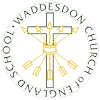
Our daily routines and educational practice are rooted in the twin values of Dignity and Respect.
History at Waddesdon aims to prepare students for success in the world of work today and tomorrow by developing students’ competencies in the following areas:
More broadly, History aims to encourage students to be engaged, morally responsible citizens who are able to play a full and effective role in their communities. They will be able to navigate the complex web of information and misinformation that exists out in the world through utilising the skillset developed through their historical studies to follow their own paths and not be led by others. Crucially, students will develop a strong sense of emotional intelligence from their engagements with the moral dilemmas of the past and apply this empathetic mindset to understanding the many global challenges that define our life and times.
After their course of study in History, students will be in command of the role that interlinking factors have played in shaping the world at a local, national and international level across time. As a result, students will have an appreciation for humanity’s shared histories that will ensure they can take their place as a citizen with agency in service of our society.

Waddesdon Church of England School’s Assessment and Feedback Policy. At Waddesdon our aim is for assessment to be: